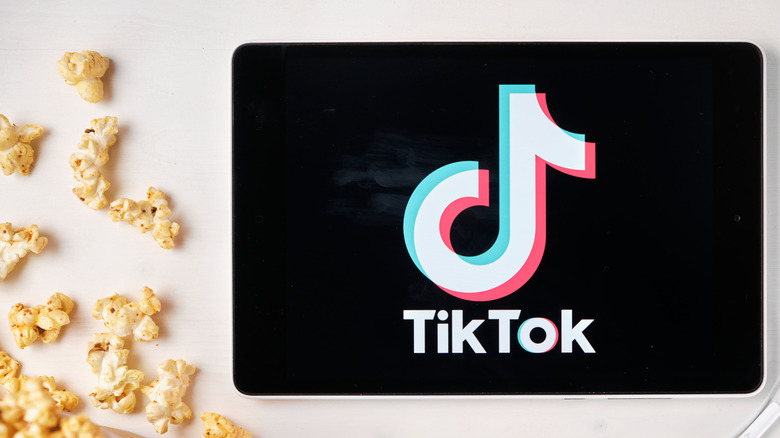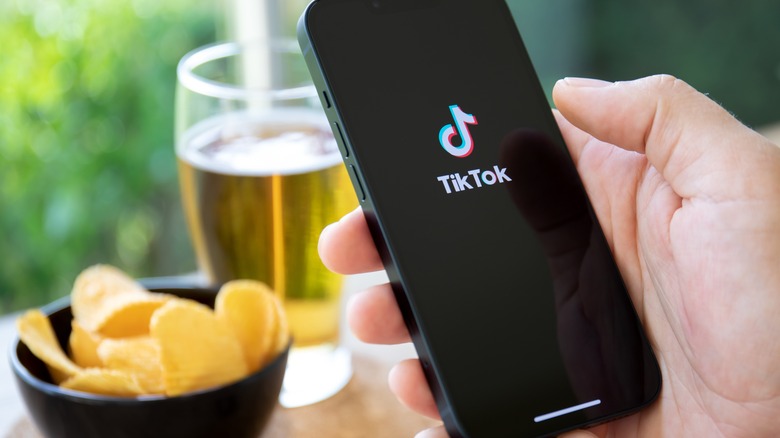It's Probably Not A Good Idea To Buy Food From TikTok
The appeal of selling any product, including food and drinks, on TikTok is obvious given its widespread popularity — despite the fact that even a viral video is not guaranteed to drive food sales, according to Instacart. Still, that doesn't stop people trying to earn their social media fortunes.
There are a few ways you can do this. One is to use TikTok's Creator's Kitchen to partner with the company Virtual Dining Concepts, which allows content creators to sell meals through ghost kitchens (delivery-only operations without a physical restaurant). Another method allows users to sell food products if TikTok has specifically reached out to them, while the final options involves creators promoting products directly through videos, or companies taking out ads on the app.
Concerns about food purchases linked to TikTok have come to prominence after instances of customers allegedly receiving poor quality products, including inadequately sealed and leaking jars of pickles, and a pink sauce sold discolored with an incomplete and misspelled ingredient list. To get to the bottom of TikTok's food quality concerns, we've investigated its sales processes to explain why due diligence is required before buying from the site.
Be careful when buying food on TikTok
Although Creator's Kitchen is endorsed by TikTok, information is lacking about the quality of kitchens provided through Virtual Dining Concepts. Its website does not appear to contain details about food safety, and ghost kitchens could create health issues if hygiene guidance isn't followed. You can't be sure which ghost kitchen made your TikTok food, so its hygiene efficiency is unknown.
TikTok's guidelines state that pre-packaged food (including biscuits, jam, and pasta) can only be sold through its official shop after a creator has been invited to do so by the company and provides proof of details, such as product safety, correct labeling, and FDA registration. Fresh, frozen, chilled, and baby foods are prohibited from being sold in the U.S. The only restrictions on food advertisements relate to not promoting the excessive consumption of foods or drinks high in fat, sugar, or salt (and not showing them at all to children), although this relies on the ad creator categorizing their product correctly. TikTok's community guidelines do not mention food or drink, so any restrictions on undeclared food promotions within videos are unclear.
The big problem with buying food from TikTok — or any social media site — is that it's not always easy to find out where the product is made. You could be buying food made in substandard and unhygienic conditions without knowing. Cleveland Clinic advises checking ingredient lists, looking for spelling mistakes, and reading reviews before making purchases online.

